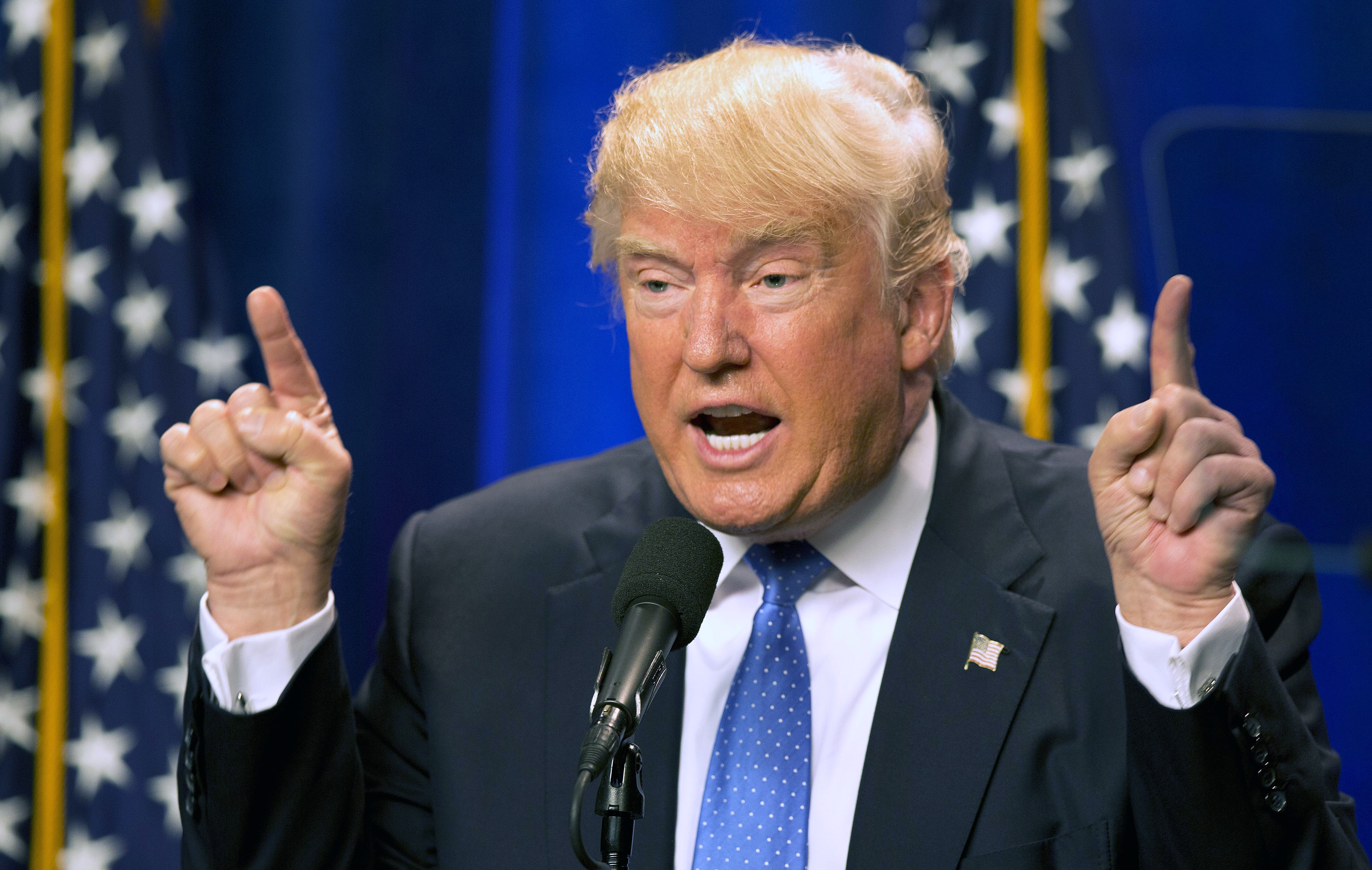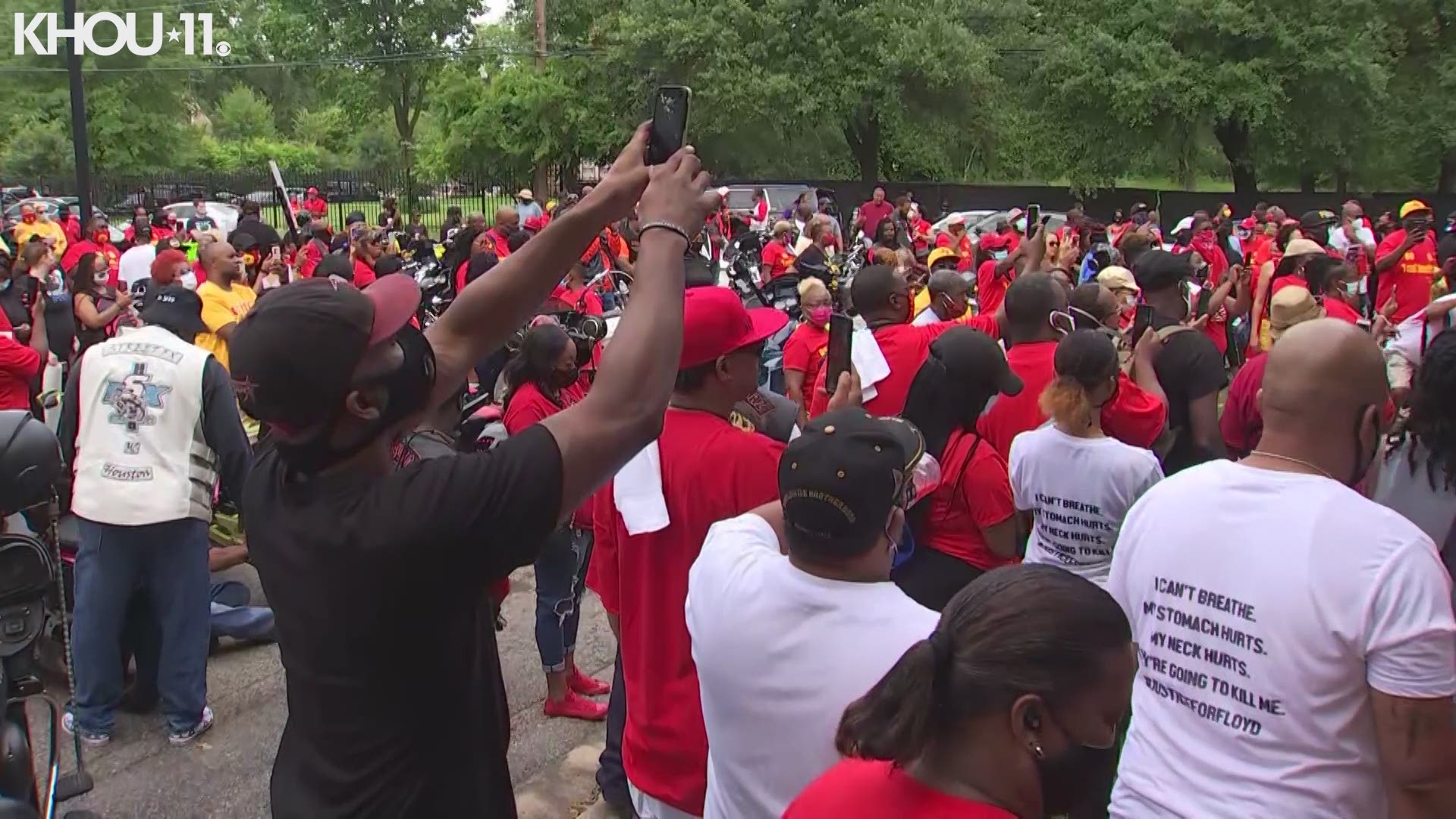CLEVELAND — No, this is not your father's Republican Party — or your brother's, or your sister's.
![GTY 545235212 A ELN POL USA OH [image : 86918480]](http://www.gannett-cdn.com/media/2016/07/10/USATODAY/USATODAY/636037507870688493-GTY-545235212.jpg)
It is Donald Trump's shape-shifting Republican Party that gathers in Cleveland over the next two weeks, preparing for a contentious convention featuring a novice candidate, a new agenda and a nervous future.
"Win or lose, the Trump candidacy has inflamed the divisions within the Republican Party," said Ryan Williams, a Republican strategist who served as spokesman for 2012 presidential nominee Mitt Romney. "Even if Trump does not become the president, these rifts will remain."
While the convention itself begins July 18, preparations begin in earnest Monday with platform hearings that may spotlight party differences over trade, immigration, and other issues likely to linger during and after the era of Trump.
![Controversy won't stop the parties at Donald Trump's convention [oembed : 86919932] [oembed : 86919932]](/Portals/_default/Skins/PrestoLegacy/CommonCss/images/smartembed.png)
Later this week, a meeting of the convention rules committee gives Trump's opponents a chance, however faint, to somehow derail his candidacy.
![Potential Trump VP slams Clinton, indicates support for abortion rights [oembed : 86918492] [oembed : 86918492] [oembed : 86918492] [oembed : 86918492] [oembed : 86918492] [oembed : 86918492] [oembed : 86918492] [oembed : 86918492] [oembed : 86918492] [oembed : 86918492]](/Portals/_default/Skins/PrestoLegacy/CommonCss/images/smartembed.png)
Meanwhile, a Republican Party that has seen a fair amount of change during more than 150 years of existence begins to assess what it will look like in the fall election campaign against Democrat Hillary Clinton and in the years to come.
Trump has already changed the party, including on:
Trade
Trump's calls to block the proposed Trans-Pacific Partnership trade deal with Pacific Rim nations — and his threat to withdraw from the existing North American Free Trade Agreement with Canada and Mexico — defy decades of Republican support for free trade.
Trump and his supporters argue that trade deals have sucked manufacturing jobs out of the United States; Republican-leaning groups like the U.S. Chamber of Commerce say trade creates different kinds of jobs and leads to lower prices for consumers.
![Odd battle: Presumptive GOP nominee Trump vs. Chamber of Commerce [oembed : 86918804] [oembed : 86918804] [oembed : 86918804] [oembed : 86918804] [oembed : 86918804] [oembed : 86918804]](/Portals/_default/Skins/PrestoLegacy/CommonCss/images/smartembed.png)
Immigration
Trump's proposals to step up deportations and build a wall along the U.S.-Mexico border don't sit well with Republicans who want comprehensive immigration legislation to address immigrants who are already in the country illegally. Some GOP critics say Trump's rhetoric is alienating the ever-growing bloc of Hispanic voters.
Style
Trump worked his way through a crowded field of Republican primary opponents with a slashing style that targeted rivals like "low energy" Jeb Bush, "Little" Marco Rubio and "Lying" Ted Cruz. Opponents responded in kind, calling Trump a "chaos candidate," and "con man."
![Trump seeks Republican unity, but GOP critics remain [oembed : 86918514] [oembed : 86918514] [oembed : 86918514] [oembed : 86918514] [oembed : 86918514] [oembed : 86918514] [oembed : 86918514] [oembed : 86918514]](/Portals/_default/Skins/PrestoLegacy/CommonCss/images/smartembed.png)
The continuing resistance to Trump can be seen in the number of prominent Republicans who aren't expected to attend this month's convention — including the last two Republican presidents (George H.W. Bush and George W. Bush) and the party's most recent nominees (John McCain and Romney) — and a "Never Trump" movement that, despite the long odds, still hopes to somehow deny him the nomination.
Trump's emergence has been quite a change for a party once know for its top-down organization, one that tended to go with "the next guy in line" when deciding presidential nominees — but not the first transformation of a party created in 1854.
![Is it Trump or Clinton? [oembed : 86918496] [oembed : 86918496] [oembed : 86918496] [oembed : 86918496] [oembed : 86918496] [oembed : 86918496] [oembed : 86918496] [oembed : 86918496] [oembed : 86918496] [oembed : 86918496]](/Portals/_default/Skins/PrestoLegacy/CommonCss/images/smartembed.png)
During the 1884 convention in Chicago, a group of dissident Republicans loudly opposed the nomination of the allegedly corrupt James G. Blaine, and many went on to support Democrat Grover Cleveland, who would ultimately win the election. Those so-called "Mugwumps," whose members included future President Theodore Roosevelt, went on to form the core of a more progressive Republican Party.
In 1912, then-ex-President Roosevelt led a walkout of the Republican convention that re-nominated President William Howard Taft, a former TR ally. Roosevelt led a third-party bid, but he and Taft lost to Democrat Woodrow Wilson in a race that exposed a Republican split among conservatives and moderates that lasts to this day.
The Great Depression ended what had been a Republican era of domination of presidential elections. After his win in 1932, President Franklin D. Roosevelt and his New Deal helped split the GOP into those who wanted to roll back government programs and those who wanted to make them more efficient.
President Dwight Eisenhower promoted the idea of "Modern Republicanism," but conservatives led by Barry Goldwater denounced Ike's programs as a "dime store New Deal."
Led by Goldwater, conservatives won control of the Republican Party at one of its most contentious conventions, the 1964 gathering in San Francisco.
Goldwater lost a landslide to President Lyndon Johnson in 1964. Republican stalwart Richard Nixon fused party factions behind his presidential election wins in 1968 and 1972, but fell in the wake of Watergate.
It took Ronald Reagan's successful candidacy in 1980 to consolidate conservative control of the GOP, which remained more-or-less intact for the next three decades — until now.
![AP CONVENTION GOP MESSAGE A FILE ELN USA MI [image : 86918550]](http://www.gannett-cdn.com/-mm-/5ff0a451ccb85cc3671f0d24e9a07731af53841b/c=139-0-2862-2327/local/-/media/2016/07/10/USATODAY/USATODAY/636037512944809545-AP-Convention-GOP-Message.jpg)
"Trump is a different kind of candidate than we've dealt with before," said Heather Cox Richardson, a history professor at Boston College who wrote a history of the Republican Party.
As Trump prepares to claim the presidential nomination, the Republican Party can be sliced and diced in any number of ways. There's the Tea Party, the business community, the libertarians, the religious conservatives, the remaining moderates and any number of other feuding factions.
Trump wants to use the convention to build party unity, though he has also said that is not essential. "I have to be honest, I think I'll win without the unity," Trump told backers recently in Raleigh, N.C.
Frank Donatelli, a former deputy chair for the Republican National Committee, said political conventions basically have two purposes: To unify the party and to introduce the ticket to millions of voters watching on television. This time, he said, "it's unclear whether they can meet those challenges."
Sarah Isgur Flores, a Republican strategist who worked for presidential candidate Carly Fiorina, said the different factions had been debating well before Trump announced his candidacy in June of 2015.
"That conversation has been put on hold for a bit," she said. "I think that conversation will become louder in November."
![Donald Trump: A look at his career and 2016 campaign [gallery : 71094094]](http://www.gannett-cdn.com/-mm-/868e529954db168eab8dee1f73595e9ebc2c6d03/c=0-0-1605-1372/local/-/media/2015/06/11/USATODAY/USATODAY/635696477757628268-trump02.jpg)


